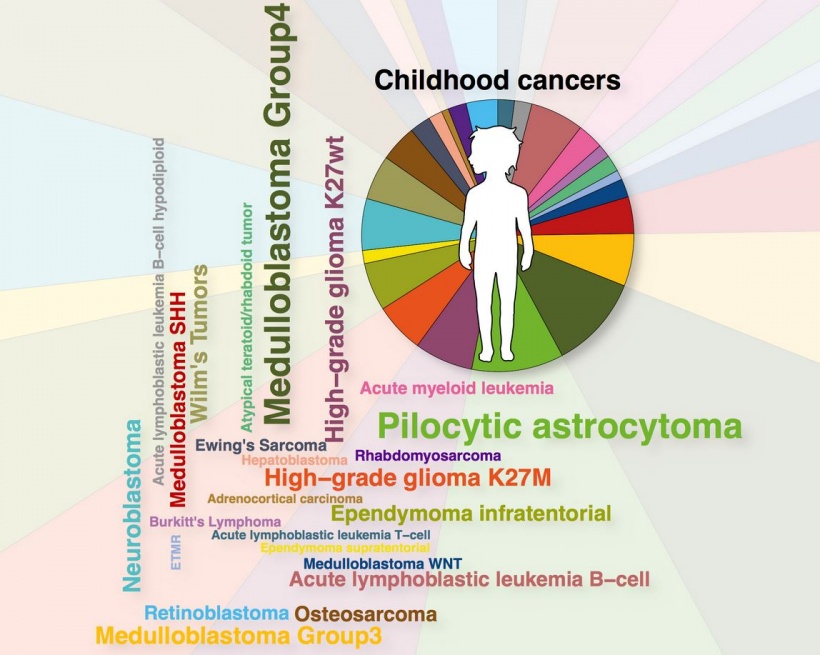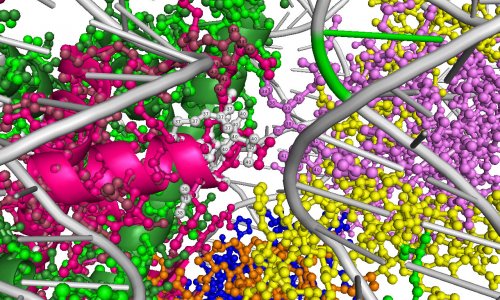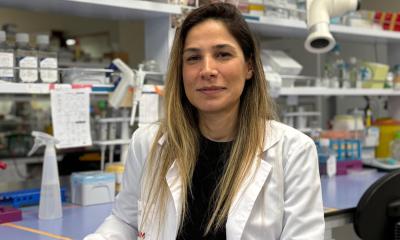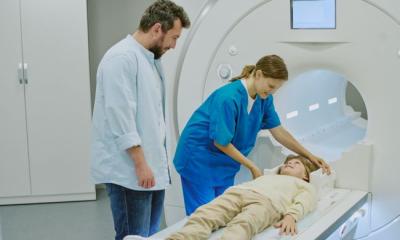News • Screening tumor samples
A molecular map of childhood cancers
Researchers led by Professor Stefan Pfister from the "Hopp Children's Cancer Center at the NCT Heidelberg" (KiTZ) have been able to draw an extremely detailed molecular map of childhood cancers. In close collaboration with the German Cancer Consortium (DKTK) and the Society for Pediatric Oncology and Hematology (GPOH), they screened almost 1,000 tumor samples from 24 cancer types for genetic alterations and then classified these alterations. In 50 percent of the samples, they found targets for novel anticancer drugs, thus opening up new therapy approaches.
Heidelberg scientists from the KiTZ, in collaboration with colleagues from the DKFZ, DKTK, NCT and Heidelberg University Hospital as well as specialized research teams from the Society for Pediatric Oncology and Hematology (GPOH), have studied the genetic repertoire of childhood cancer. With the goal of identifying novel approaches for diagnosis and treatment of cancer in children, the investigators used the most advanced DNA sequencing technology and comprehensive data analysis to take a very close look at point mutations in DNA as well as larger structural changes in 961 tumors of 24 different types of cancer.

"It turned out in about half of the patients that genetic alterations affected cancer cells so that they are potential targets for so-called targeted anticancer drugs," said Marc Zapatka, group leader of Bioinformatics at the Molecular Genetics Department of the DKFZ. Stefan Pfister, scientist at the DKFZ, attending physician at Heidelberg University Hospital and director of the preclinical program at KiTZ, added: "This is a very encouraging result because it means that we might already have agents that target these specific sites and, therefore, might be treatment options for the affected patients." Pfister continued: "Most of these drugs have not yet been tested for children. It remains to be seen whether they are also safe and effective in young patients."
In approximately seven percent of all cases, the scientists found genomic alterations that are suspected to have played a role in the development of cancer in these patients. These so-called germline mutations can either be inherited from a parent or form at the very beginning of embryonic development and, therefore, are present in every single body cell of a patient. They are transmitted to the next generation of offspring. Patients with heritable forms of cancer need special attention, because they often need to be treated differently from patients with the same type of cancer who do not have a heritable predisposition.
Special children's drugs needed
"Compared to tumors in adults, the investigations revealed large variations in the type and incidence of mutated genes," said KiTZ associate Lukas Chavez, who worked as a group leader at DKFZ's Pediatric Neurooncology Department. "This confirms once more that tumor development proceeds in fundamentally different ways in children compared to adults," Pfister commented. "And it also shows us that we have to go about developing targeted therapies for children differently than for adults. In many cases, we may also need drugs that are specially developed for children."
The data are freely available on www.pedpancan.com. Colleagues from St. Jude Children's Research Hospital in Memphis, USA, published further molecular data on childhood cancers along with the Heidelberg study in Nature. Data from both studies are available at St Jude PeCan portal (https://pecan.stjude.org/home). "The two studies, which were developed in close collaboration of all teams, complement each other and together almost entirely cover the molecular diversity of childhood cancers," explains Pfister. "We believe that the data are a valuable source for pediatric oncology research and can help to improve the cure rates for young cancer patients."
The project has received major support from the German Cancer Consortium (DKTK), the German Cancer Aid (Deutsche Krebshilfe) and the German Childhood Cancer Foundation (Deutsche Kinderkrebsstiftung).
Source: DKFZ
10.03.2018





